SUMMARY
This is AI generated summarization, which may have errors. For context, always refer to the full article.
![[OPINION] Towards a new solidarity in the North?](https://www.rappler.com/tachyon/2022/03/tl.jpg)
The huge number of Cagayanos and Isabelinos who participated in the recent Leni Robredo-Kiko Pangilinan campaign rallies in Alcala and Tuguegarao City in Cagayan, and in Santiago City and Echague in Isabela has rightly been seen as shattering the “Solid North” myth. These rallies are arguably the strongest and most visible manifestation yet of a tectonic shift in the cognitive and cultural repertoire that has hitherto shaped the political imagination of generations of Ilokanos.
The myth of the ‘Solid North’
The Solid North is a myth in at least two ways. One, the Amianan has never been completely behind Ferdinand Marcos. There have always been pockets of resistance against him, and although perhaps small in number, the people who stood and fought against him belie this “Solid North” claim. We need to take seriously the “solidity” of this support because part of the myth-making practices of Ferdinand Marcos is precisely the exaggeration or stretching of truth. He was playing us a psychological and political game.
Two, “Solid North” connotes a relationship which indicates an Amianan people-to-Marcos-direction of support. We need to ask the question, “Solid North for whom?” The representation of people being solidly behind Marcos erases how manufactured and coerced this “Solid North” is. Any Filipino politician recognizes how politically useful ethnolinguistic ties are. Marcos actively cultivated and drew on this cultural and linguistic capital. Alongside this cultivation of warm ethnolinguistic ties, Marcos pursued development aggression in the North and brutally repressed opposition. He Ilokano-ethnicized the military leadership and appointed Ilokanos to important government ministries and offices, which many Ilokanos took as a sign of how Marcos loved the Ilokano people. The perception was that together with Marcos himself, these Ilokano officials became instrumental in bringing in more development (just as mythical as “Solid North”) to the Amianan. If only we knew then: he put them there to solidify his control of the government and so perpetuate himself in power.
The political significance of the Cagayan and Isabela rallies
The Cagayan and Isabela (10,000) political rallies were much smaller in attendance than the Leni-Kiko rallies in Bacolod (70,000), General Trias, Cavite (47,000) and Bulacan (45,000). Nevertheless, they have been considered the “bravest” or “most courageous” of the Olympink gatherings. Brave and courageous because the Cagayanos and Isabelinos who participated were “swimming against the current” — a rather appropriate metaphor given that the country’s longest river, the Cagayan River, courses through both provinces — of a long history of and continuing political support for the Marcoses. Their attendance could be taken to signify their turning their back on the Marcoses. This is an act that could be so existentially painful as to constitute a risk to one’s ontological security. But precisely for being so, letting go of one’s inherited or “heritage” loyalties can be truly and exhilaratingly liberating. It is what shatters the “Solid North” myth.
For those born and bred in the Amianan, few things can be as empowering as throwing off the yoke of Marcos. It is a great badge of honor. It shows critical historical thinking and independent mindedness. It shows bravery and courage. Your own family and relatives will be against you. In the extreme, if you happen to be a young adult still dependent on parents, “baka pagtalawendaka.” (You could be told to leave the family home). No one wants to be a loser, so the cliché goes.
The anti-Marcos might lose in local or national elections, but they certainly win on the side of history. And history is the final judge. In this regard, the political symbolism and significance of the Cagayan and Isabela rallies are clear — for both the Robredo and Marcos camps. Those rallies would have been as psychologically empowering for Leni Robredo and her supporters as the numerically superior Bacolod, Cavite, and Bulacan rallies have been electorally invigorating for them. They would have been psychologically debilitating for and politically discouraging of Marcos Jr., whose campaign sorties have suffered disappointing attendance, and which has not exhibited the life and energy that have come to define the Leni-Kiko campaigns. Marcos Jr. should be rightly worried. Although it is highly likely that he might yet win in the Amianan, his victory will be only as solid as his father’s bust in La Union is solid now.
Collective effervescence and social change
Among the presidential and vice-presidential candidates, Leni Robredo-Kiko Pangilinan and Leody de Guzman-Walden Bello have explicitly made their anti-Marcos positions known. Leni Robredo is distinguished by the fact that her candidacy was driven by a motivation to stop the Marcos family’s return to Malacañang. Where is the Amianan support for an anti-Marcos candidate coming from? What has enabled an anti-Marcos candidate to generate this support? Observers point out that whereas Marcos Jr. has largely been absent particularly in times of crisis and great need, Robredo has been a hardworking vice president who has shown tremendous creativity and capacity to mobilize people and resources. Leni Robredo was the first to respond to appeals for help from people in, for example, Alcala and Tuguegarao City, Cagayan which suffered devastation from Typhoon Ulysses in November 2020. She came to embody a genuinely responsive and responsible leadership. People in Cagayan and Isabela have been inspired by having been cared for and this sense of care, this caring and care-ful leadership, is shaping a political affectivity that is no longer as moved or swayed by patronage ties and other traditional means of support, and even by fear and coercion. And people could only repay in kind what Leni Robredo has given them. As the mayor of Alcala said in the rally in her hometown: “masubadan” (repaid).
Leni Robredo’s leadership, commentators and supporters have noted, has inspired a social movement. Robredo has inspired in Cagayan and Isabela, and elsewhere, what Emile Durkheim called collective effervescence. As commentators explain, collective effervescence are decisive moments that come to inform and shape events and developments in a particular society. They capture and express the ideals, aspirations, and values that bind people and that emerge from certain social conditions. In the case of Robredo, these conditions include, among others, the violent and incompetent Duterte presidency and the prospect of a Marcos return to power and the succession of Sara Duterte as president afterwards. What adds to how grim these prospects are is the fact that the country’s most corrupt politicians have joined hands together to support Marcos Jr. and Sara Duterte.
Scholars say that because collective effervescence is based on emotion, its social consequences could be short-lived only. There is therefore a need to sustain what has emerged from and developed around what Leni Robredo’s leadership and candidacy represent, as well as from the spirit and practices of volunteerism that her supporters have exhibited, and which have underpinned Robredo’s campaign. The yearning for competent leaders and true public servants should be grounded on a sociological imagination that remembers examples of true and selfless public servants who offered their lives for the Filipino people. This desire should be nurtured by the lessons learned from, and our experiences of, dysfunctional and corrupt governments that have allowed old and new social wounds to fester. For those in the North, the challenge is expanding the means to foster alternatives to fossilized thinking and practices that have worked in favor of the Marcoses.
Towards a new Northern solidarity?
Ferdinand Marcos propagated a mythic and self-serving “Solid North.” What we have witnessed in Cagayan and Isabela is possibly the emergence of the potential for a new Northern solidarity. People of these Northern provinces are now both showing more political consciousness and maturity. For them, being a fellow Ilokano is no longer enough basis for choosing a candidate. They are increasingly looking at accomplishment, track record, and program of action and governance. They are showing a new moral compass by finally taking a stand against the Marcoses and being more open to choosing a candidate who is an “outsider” but who possesses real leadership. This solidarity builds alliances with other Filipinos based on shared social vision and aspirations. This form of solidarity does not turn the North into a block that could sometimes be seen as ethnically parochial and territorial, protective of their own kind. Instead, it transcends regional ethnolinguistic affiliations to encompass national interests. Crucially, this solidarity would include and require breaking the intergenerational transmission of pro-Marcos memories among Ilokanos. – Rappler.com
Roderick Guerrero Galam is a Senior Lecturer in Sociology at Oxford Brookes University. He is author of The Promise of the Nation: Gender, History, and Nationalism in Contemporary Ilokano Literature and Women Who Stay: Seafaring and Subjectification in an Ilocos Town, both published by the Ateneo de Manila University Press.
Add a comment
How does this make you feel?
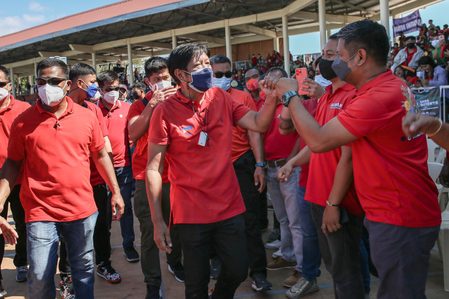
![[OPINION] A genuine Ilokano’s reflections on Marcos loyalism](https://www.rappler.com/tachyon/2022/03/Reflections-on-Ilokanos-Marcos-loyalism.jpg?fit=449%2C449)
![[New School] Same family, different votes](https://www.rappler.com/tachyon/2022/03/ns-diffvote.jpg?fit=449%2C449)
![[WATCH] In The Public Square with John Nery: Preloaded elections?](https://www.rappler.com/tachyon/2023/04/In-the-Public-Square-LS-SQ.jpg?resize=257%2C257&crop=414px%2C0px%2C1080px%2C1080px)
![[Newspoint] 19 million reasons](https://www.rappler.com/tachyon/2022/12/Newspoint-19-million-reasons-December-31-2022.jpg?resize=257%2C257&crop=181px%2C0px%2C900px%2C900px)

![[OPINION] The long revolution: Voices from the ground](https://www.rappler.com/tachyon/2022/06/Long-revolution-June-30-2022.jpg?resize=257%2C257&crop=239px%2C0px%2C720px%2C720px)
![[OPINION] I was called a ‘terrorist supporter’ while observing the Philippine elections](https://www.rappler.com/tachyon/2022/06/RT-poster-blurred.jpeg?resize=257%2C257&crop_strategy=attention)
![[OPINION] If it’s Tuesday it must be Belgium – travels make over the Marcos image](https://www.rappler.com/tachyon/2024/04/tl-travel-makeovers-marcos-image.jpg?resize=257%2C257&crop_strategy=attention)


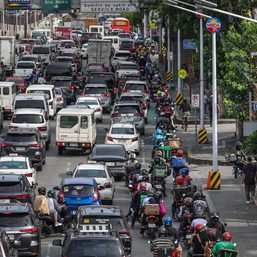

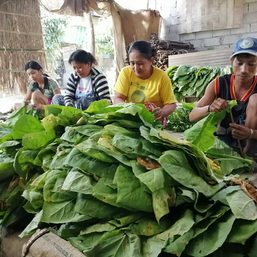



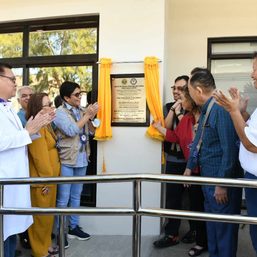
![[OPINION] Sara Duterte: Will she do a Binay or a Robredo?](https://www.rappler.com/tachyon/2024/03/tl-sara-duterte-will-do-binay-or-robredo-March-15-2024.jpg?resize=257%2C257&crop_strategy=attention)
![[New School] Tama na kayo](https://www.rappler.com/tachyon/2024/02/new-school-tama-na-kayo-feb-6-2024.jpg?resize=257%2C257&crop=290px%2C0px%2C720px%2C720px)

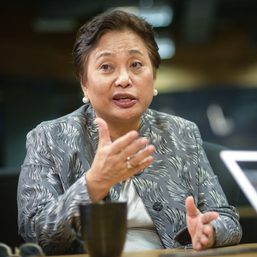

There are no comments yet. Add your comment to start the conversation.